Hundreds gather for VE Day parade
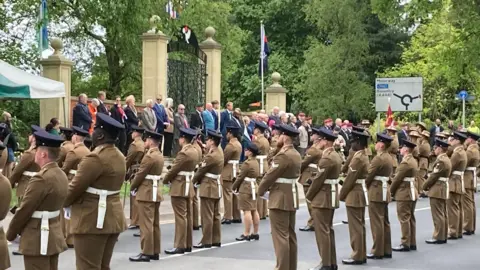 BBC
BBCHundreds of people have gathered for a parade as part of the 80th anniversary of VE Day in Warwickshire.
About 150 soldiers from the 30 Signal and Queens Gurkha Signals regiments marched through Bedworth to mark the occasion on Thursday morning.
The parade began at the Almshouses and moved on to the high street, before heading up to the Peace Podium on Sergeant Simon Valentine Way.
VE Day commemorates victory in Europe and marks the end of nearly six years of war on 8 May 1945, when Nazi German forces surrendered to the Allies in World War Two.
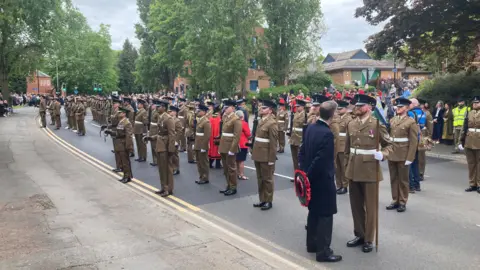
Dozens of events have taken place across the area to mark the 80th anniversary, including street parties, as well as church and memorial services.
In Shipston-on-Stour, Warwickshire, a new exhibition called Shipston Remembers opened on Thursday to commemorate VE Day.
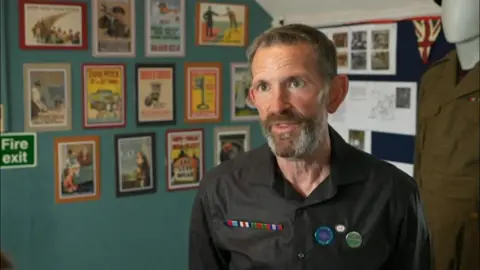
The collection, at Shipston Museum, recognises the contributions of local people and includes items such as medals, ration books, war food recipes and VE Day newspapers.
"These were very close knit towns, where everybody would have known everybody," explained Stephen Hartley, museum trustee.
"People have come forward with photographs, with items, who want to remember, who want to tell their family stories about the people that they hold dear and whom they respect."
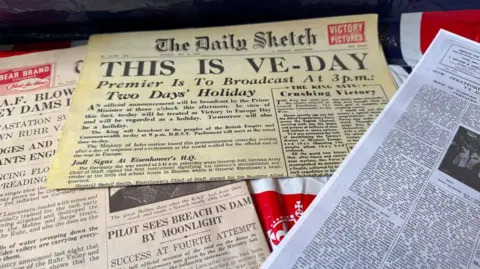
Bernard Maguire recalled the dancing and singing at the time and described it as a "wonderful time".
"We were sat down on these trestle tables out and food used to appear from out of the houses, but we'd all been suffering from you know food shortages," he said
"We'd always put a little bit by, for at the end of the war and it all came together."
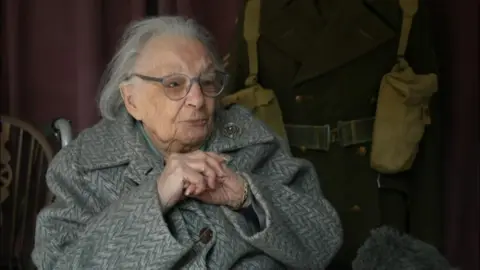
Doreen Knapton, 101, was a young mother during the war and contributed to the war effort by working in a munitions factory.
"I was the littlest of the lot and the girls used to go over the fence and get apples, and I used to have to stand guard," she told the BBC.
Ms Knapton's son, Alwyn Napton, who is now in his 80s, said the country's unity during the conflict should be praised.
"It wasn't just the ones that were fighting, it was all those back home keeping the country going. Digging for Britain and all that sort of stuff," Mr Knapton said.
"I think everybody done their bit."
Follow BBC Coventry & Warwickshire on BBC Sounds, Facebook, X and Instagram.
